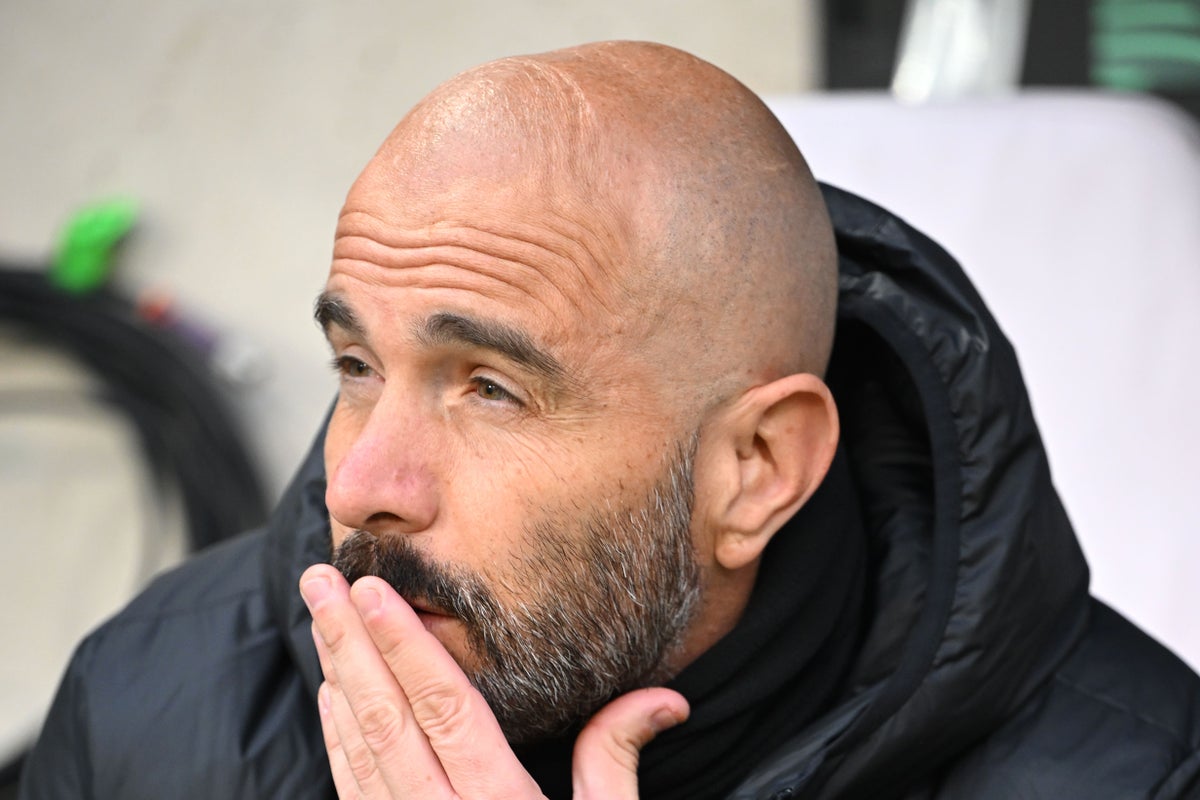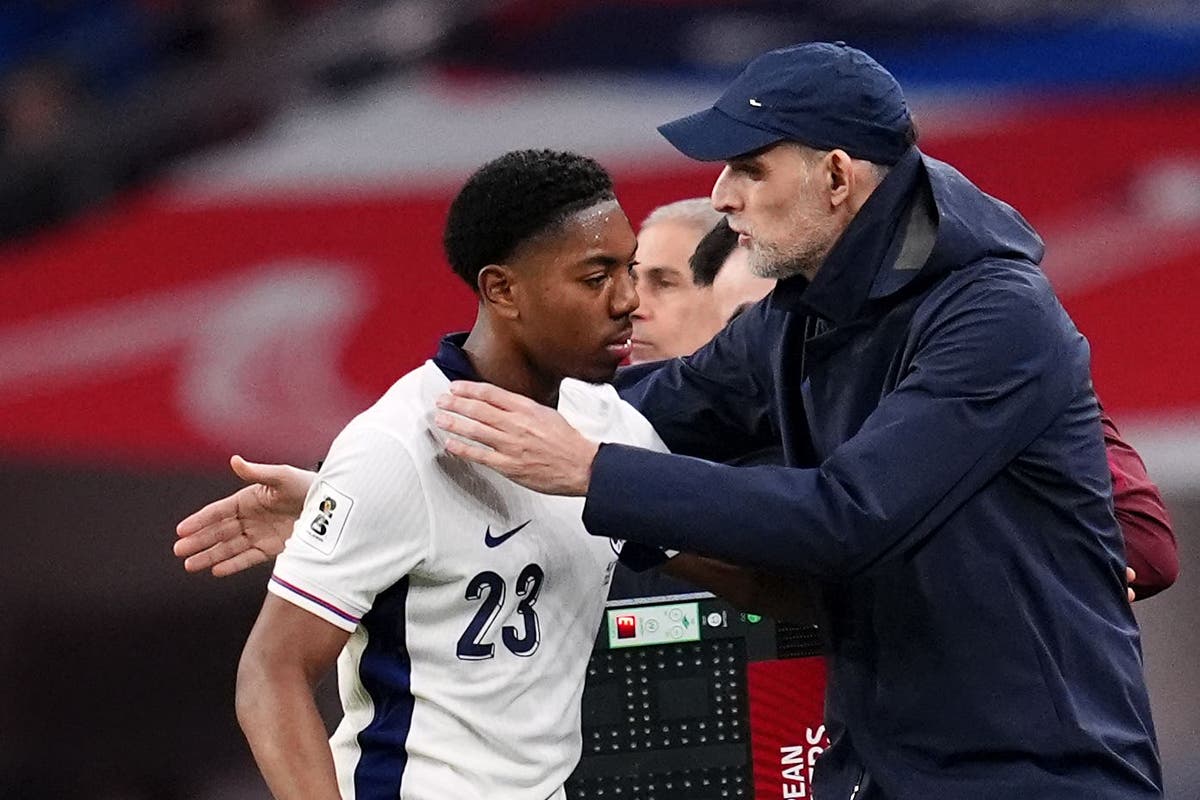To be the best, you have to beat the best. It is a familiar theory. It appears to be underpinning Arsenal’s planning, their strategy for the season. Or, even when the best are unbeatable, at least draw 1-1 with them.
The fact Arsenal topped the table for 248 days has been relegated to a subplot in last season’s tale of Manchester City’s treble. It did not have the inevitability sometimes attributed, but City retained the status of title favourites for virtually all of those 248 days. The two most significant came against Arsenal: 3-1 and 4-1 victories were emphatic, a brilliantly brutal illustration of the destructive gifts of Erling Haaland and, still more so, Kevin de Bruyne, whose 167 minutes against the Gunners produced three goals and two assists.
And take those two results away and Arsenal got 84 points and City 83. It isn’t as simple as that, Pep Guardiola’s team dropping five points after the title was won, three of them with a second-string side. The eventual standings could nevertheless be used to argue that Arsenal were better at beating the rest.
Mikel Arteta can exhibit a sense of relentless ambition. The next step for the Arsenal manager was to make his side better against their rivals. A lesson of City’s five Premier League crowns under Guardiola is that their points tallies tend to be so high that few others will stop them. Arsenal have assumed more responsibility for doing so, amending their identity in their process.
There was an endearing innocence to them last season, the unexpected challengers with their youthful verve and attacking football. The altered Arsenal – Arsenal 2.0, to customise Jurgen Klopp’s phrase about Liverpool – place more emphasis on being streetwise and solid. A 2024 flurry of goals has followed, with 33 in eight league games.
Yet the significant scorelines are smaller. The first statement of intent came at the off, the Community Shield win over City, albeit on penalties. The 1-0 Premier League victory came with a mere two shots on target, but affording Guardiola’s team just one. City had just four shots in total, their fewest in a league game since 2010. In contrast, last season, they had 15 on target over two decisive meetings with Arsenal.
And so to the Etihad, to Arsenal’s house of horrors, a ground where they have often looked naive and outclassed, a place where they have conceded 19 in six league matches. Do a first league double over City in the Sheikh Mansour era and Arsenal would be five points ahead of them with nine games to go and a significantly superior goal difference. Yet a draw would represent significant progress, too: it would give them four points against City, winning their head-to-head for the season. They already have four against Liverpool. Topping the top three mini-league is not the same as taking the title, but it helps.
Arsenal’s Declan Rice celebrates scoring at the Emirates
Some other numbers may prove decisive and could hint at Arteta’s gameplan: not the 17 goals Arsenal have scored in their last three away games in England, either. In three league matches against Liverpool and City this season, they have conceded twice. In all competitions, they have faced the rest of the top six – Liverpool, City, Aston Villa, Tottenham, Manchester United – eight times and had two Champions League knockout ties against Porto. In those 10 matches, one of which lasted 120 minutes, they have conceded only 10 times, an average of one per 93 minutes. Last season, they conceded eight to City (including an FA Cup defeat), four in two matches against Liverpool, five in two against Manchester United.
Now Arsenal venture north having allowed opponents 19 fewer shots on target in the top flight than the next best, City, and with an xGA that is 5.11 better than anyone else. Arteta is the former Guardiola sidekick whose revolution can look decidedly pragmatic. A tactic borrowed from his mentor is scarcely tiki-taka: Arsenal are likely to line up at the Etihad with four centre-backs in defence, just as City did in the Champions League final. Preserving the clean sheet can take precedent over the passing skills of using Oleksandr Zinchenko, a triumph of Guardiola’s powers of reinvention, as an inverted full-back in midfield.
Arsenal have their battalion of strapping six-footers: like City now, they have the physicality to tower over the diminutive sides Guardiola and Arteta oversaw together. They also have Declan Rice, a player City also wanted, a potential Footballer of the Year.
Mikel Arteta has helped Arsenal to evolve after damaging defeats to Man City last season
It would be tempting to attribute Arsenal’s record £105m deal to their evisceration at the Etihad last April, when Thomas Partey, excellent for three-quarters of the season, was abject in the run-in. It would also be untrue, given that Arsenal’s interest in Rice had begun before then. Arteta knew the difference midfield ballast could provide.
So it is instead instructive to rewind to the England international’s Gunners debut in the Community Shield: as a No 8, not a No 6. Then Partey was the holding midfielder. It will probably be Jorginho on Sunday, but it highlighted an intent to use Rice not as the defensive midfielder, but to give a more defensive balance in the middle of the pitch. That Kai Havertz’s Arsenal bow came at Wembley as a false nine was a second marker: the scorer of a Champions League final winner against City may be the anti-Haaland, less a specialist scorer, more likely to drop into the midfield, but he is another way Arteta has added off-the-ball effort.
If Arsenal look more redoubtable, their last visit to City came during an eight-game spell when they conceded 16 times. Now their run-in feels more daunting: with four of the top six to play, with a Champions League double header against Bayern Munich, perhaps with a semi-final against City to follow. If Arteta’s new plan is to defend his way to glory, the road goes through the Etihad Stadium. Arsenal may not need to win there. But they surely can’t afford to lose.
Source: independent.co.uk



